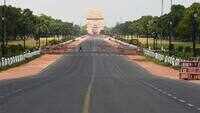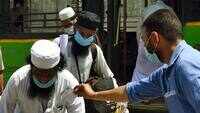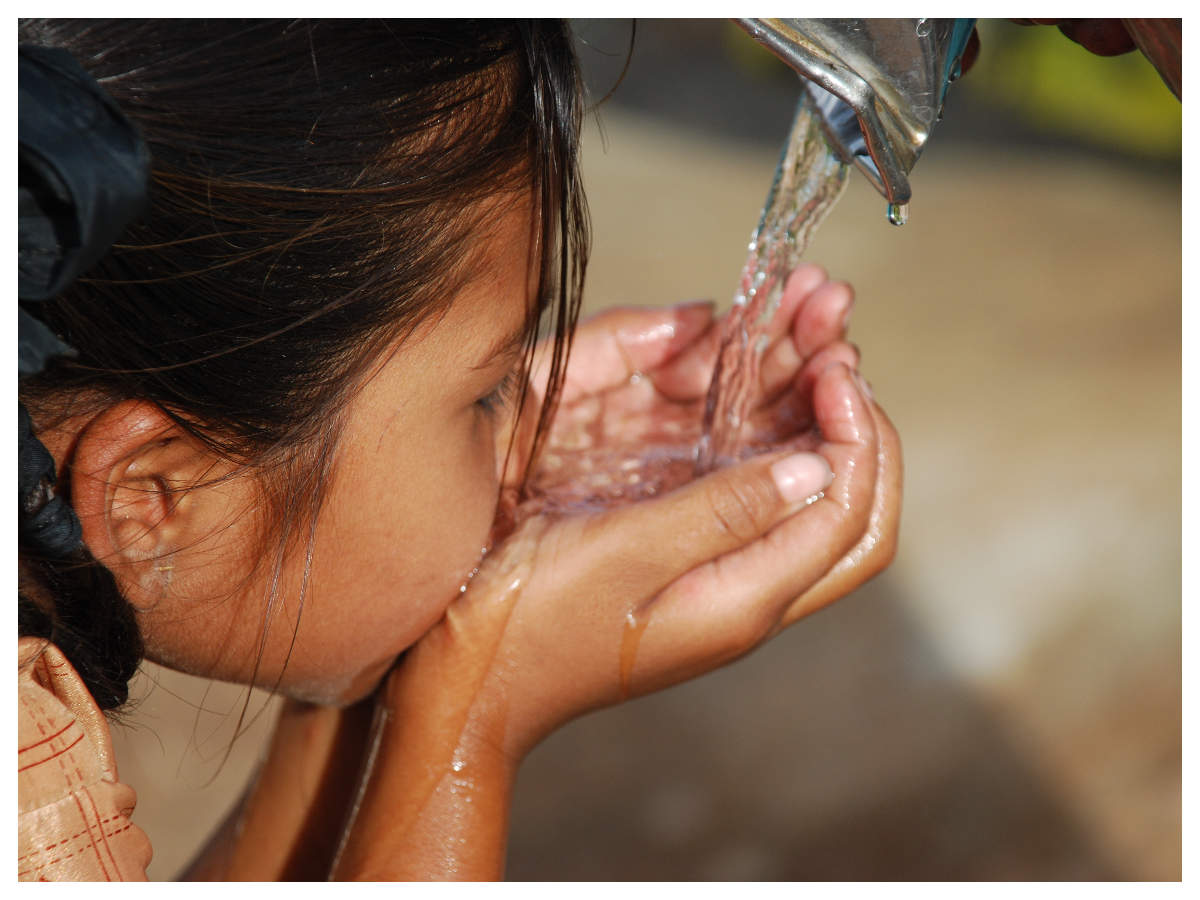
Coimbatore: The practice of “cross notifying” cases and segregating them as “indigenous” and “imported” seems to help little in the battle to contain Covid-19 pandemic. But this seems to have added to the woes of health department, which is having a tough time getting the tally of “indigenous” and active cases in the district right.
Epidemiologists say this practice is dangerous for multiple reasons. A senior epidemiologist says, “If a district doesn’t report to have any cases just because of this practice, when it is actually having patients, both the health workers and people will have a false sense of security and thus stop taking precautions. When there are many cases and if they don’t get recorded under the right district, the health authorities will not do proper contact tracing and isolating.”
Take the case of the taxi driver, who drove a family to a private hospital on Mettupalayam Road from Chennai for a surgery, for instance. While he was tested positive in the city, he was added to the Covid-19 count of the state capital. So was the case of the police officer, who tested positive for the virus three days after she returned to the city from Chennai, where she was undergoing training.
Both of them, who are undergoing treatment at the ESI Hospital, had met many people in the district. While the private hospital had to quarantine more than 40 people, including some canteen staff, the lady cop had come in contact with 150 people, who have been asked to remain in quarantine. Yet, they were added to the Covid-19 tally of Chennai.
However, in a jarring contrast, the four new “indigenous” cases in the district comprise a Race Course resident who travelled to Chennai a couple of months ago where she tested positive and hospitalized, and a 24-year-old flyer from Bengaluru.
Dr G Ramesh Kumar, deputy director of public health, says, “We have informed the state government that the 74-year-old Race Course resident had travelled to Chennai several months ago and that the person must have contracted the virus there, and not from the district.”
The health department was equally surprised when the 24-year-old Bengaluru returnee was added to the district’s “indigenous” cases list. According to an official, this was radically different from the guidelines followed until Monday, when returnees from other districts and states were added to the Covid-19 tally of those places, if they tested positive for the virus.
While epidemiologists welcome the move to add a patient to the Covid-19 tally of the district from where one tests positive, they say guidelines on reporting and recording cases should be consistent.
Dr P Kulandaisamy, former director of public health, says the Indian Council of Medical Research (ICMR) should come up with a clear guideline on notifying patients to the Covid-19 map of the place where they test positive. “The cases should be added to the place from where they test positive for the virus. If a flyer to the city gets tested positive here, that person should be added to the district’s Covid-19 tally. However, health officials in their city of origin should be informed, so that they can trace the patient’s contacts and travel history.”
If ICMR keeps changing guidelines, he says that would lead to both duplication of cases and under-reporting. “There shouldn’t be any obsession with numbers and zoning, because it is not relevant at this stage.”
Out of the 22 patients who are admitted to the ESI Hospital, at least 10 are from the district.
Meanwhile, five people, who landed in the city from Dubai on Wednesday, tested positive for Covid-19 on Thursday. All of them are from other districts such as Trichy, Erode and Tiruvarur.
Epidemiologists say this practice is dangerous for multiple reasons. A senior epidemiologist says, “If a district doesn’t report to have any cases just because of this practice, when it is actually having patients, both the health workers and people will have a false sense of security and thus stop taking precautions. When there are many cases and if they don’t get recorded under the right district, the health authorities will not do proper contact tracing and isolating.”
Take the case of the taxi driver, who drove a family to a private hospital on Mettupalayam Road from Chennai for a surgery, for instance. While he was tested positive in the city, he was added to the Covid-19 count of the state capital. So was the case of the police officer, who tested positive for the virus three days after she returned to the city from Chennai, where she was undergoing training.
Both of them, who are undergoing treatment at the ESI Hospital, had met many people in the district. While the private hospital had to quarantine more than 40 people, including some canteen staff, the lady cop had come in contact with 150 people, who have been asked to remain in quarantine. Yet, they were added to the Covid-19 tally of Chennai.
However, in a jarring contrast, the four new “indigenous” cases in the district comprise a Race Course resident who travelled to Chennai a couple of months ago where she tested positive and hospitalized, and a 24-year-old flyer from Bengaluru.
Dr G Ramesh Kumar, deputy director of public health, says, “We have informed the state government that the 74-year-old Race Course resident had travelled to Chennai several months ago and that the person must have contracted the virus there, and not from the district.”
The health department was equally surprised when the 24-year-old Bengaluru returnee was added to the district’s “indigenous” cases list. According to an official, this was radically different from the guidelines followed until Monday, when returnees from other districts and states were added to the Covid-19 tally of those places, if they tested positive for the virus.
While epidemiologists welcome the move to add a patient to the Covid-19 tally of the district from where one tests positive, they say guidelines on reporting and recording cases should be consistent.
Dr P Kulandaisamy, former director of public health, says the Indian Council of Medical Research (ICMR) should come up with a clear guideline on notifying patients to the Covid-19 map of the place where they test positive. “The cases should be added to the place from where they test positive for the virus. If a flyer to the city gets tested positive here, that person should be added to the district’s Covid-19 tally. However, health officials in their city of origin should be informed, so that they can trace the patient’s contacts and travel history.”
If ICMR keeps changing guidelines, he says that would lead to both duplication of cases and under-reporting. “There shouldn’t be any obsession with numbers and zoning, because it is not relevant at this stage.”
Out of the 22 patients who are admitted to the ESI Hospital, at least 10 are from the district.
Meanwhile, five people, who landed in the city from Dubai on Wednesday, tested positive for Covid-19 on Thursday. All of them are from other districts such as Trichy, Erode and Tiruvarur.

Coronavirus outbreak
Trending Topics
LATEST VIDEOS
City
 Kerala pregnant elephant killing: Preliminary post-mortem reports out
Kerala pregnant elephant killing: Preliminary post-mortem reports out  Bigger tremors round the corner in Delhi-NCR?
Bigger tremors round the corner in Delhi-NCR?  2,550 foreign Tablighi Jamaat members blacklisted by Home Ministry; entry into India banned for 10 years
2,550 foreign Tablighi Jamaat members blacklisted by Home Ministry; entry into India banned for 10 years  Justice will prevail: Kerala CM Pinarayi Vijayan on killing of pregnant elephant
Justice will prevail: Kerala CM Pinarayi Vijayan on killing of pregnant elephant
More from TOI
Navbharat Times
Featured Today in Travel
Quick Links
Kerala Coronavirus Helpline NumberHaryana Coronavirus Helpline NumberUP Coronavirus Helpline NumberBareilly NewsBhopal NewsCoronavirus in DelhiCoronavirus in HyderabadCoronavirus in IndiaCoronavirus symptomsCoronavirusRajasthan Coronavirus Helpline NumberAditya ThackerayShiv SenaFire in MumbaiAP Coronavirus Helpline NumberArvind KejriwalJammu Kashmir Coronavirus Helpline NumberSrinagar encounter
Get the app



